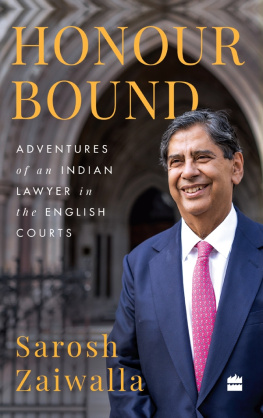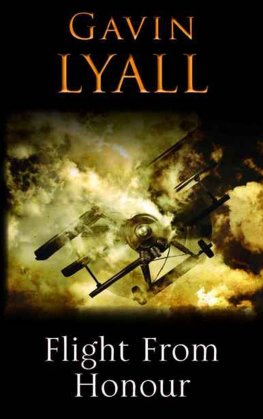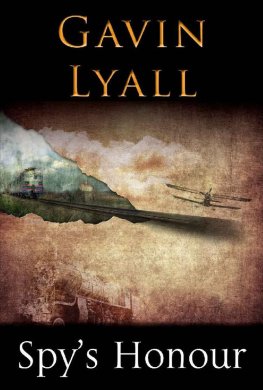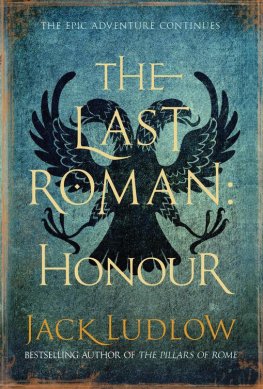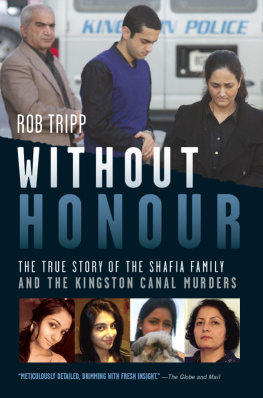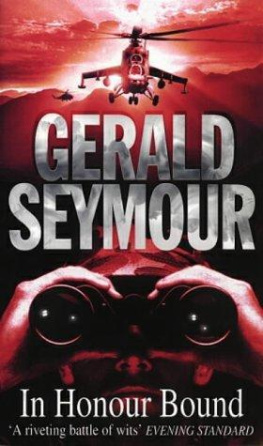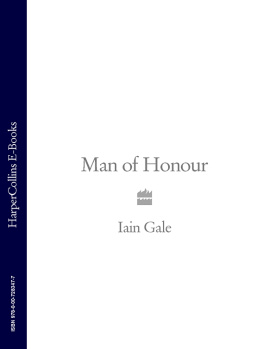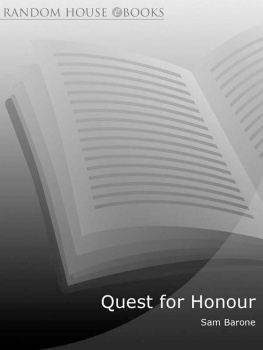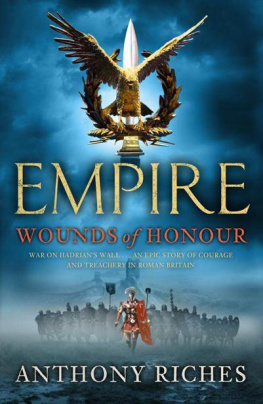Sarosh Zaiwalla - Honour Bound
Here you can read online Sarosh Zaiwalla - Honour Bound full text of the book (entire story) in english for free. Download pdf and epub, get meaning, cover and reviews about this ebook. publisher: HarperCollins Publishers India, genre: Politics. Description of the work, (preface) as well as reviews are available. Best literature library LitArk.com created for fans of good reading and offers a wide selection of genres:
Romance novel
Science fiction
Adventure
Detective
Science
History
Home and family
Prose
Art
Politics
Computer
Non-fiction
Religion
Business
Children
Humor
Choose a favorite category and find really read worthwhile books. Enjoy immersion in the world of imagination, feel the emotions of the characters or learn something new for yourself, make an fascinating discovery.
- Book:Honour Bound
- Author:
- Publisher:HarperCollins Publishers India
- Genre:
- Rating:5 / 5
- Favourites:Add to favourites
- Your mark:
- 100
- 1
- 2
- 3
- 4
- 5
Honour Bound: summary, description and annotation
We offer to read an annotation, description, summary or preface (depends on what the author of the book "Honour Bound" wrote himself). If you haven't found the necessary information about the book — write in the comments, we will try to find it.
Honour Bound — read online for free the complete book (whole text) full work
Below is the text of the book, divided by pages. System saving the place of the last page read, allows you to conveniently read the book "Honour Bound" online for free, without having to search again every time where you left off. Put a bookmark, and you can go to the page where you finished reading at any time.
Font size:
Interval:
Bookmark:
HONOUR
BOUND
ADVENTURES of an
INDIAN LAWYER in
the ENGLISH COURTS
Sarosh Zaiwalla

Dedicated to Bahullh, the founder of the Bah Faith, whose aim is for humanity to work towards the goal of One World and One Mankind, who offers a vision of a united, peaceful and prosperous world and of the nature and purpose of life.
Contents

Oh, to be in England.
Now that Zaiwallas there!
I am delighted that the enterprising Sarosh Zaiwalla has written his memoirs: they are frank and fearless, replete with Indianness, and with a sense of pride at being born a Parsi Zoroastrian.
We Parsis, I must confess, are a proud lot. We often regale ourselves with the legendseeking refuge. He was so impressed with their effort that he granted them permission to settle of course, on conditions mentioned by Sarosh in the book.
Our forebears from Persia cultivated the art of diplomacy because of an unerring instinct for self-preservation. Their successors continued the fine art for generations, which is how one of our high priests got invited to the court of the great Mughal emperor Akbar, to explain to him the basic tenets of our religion. This is also how generations of Parsi Zoroastrians were treated with honour and dignity by the British who first conquered and then ruled over an undivided India for more than two centuries. The Parsis, as loyal Indians, have prospered in the Republic of India, though in fast- diminishing numbers. But enough about Parsis.
I have known Sarosh and the entire Zaiwalla family his dear mother and father, as well as his three brothers and sister for more years than I can recall. I have seen the youngest in the family grow up and prosper and reach great heights in the law in a country that is not his own, but which he has adopted. He is truly one of Gods self-made men. It is to his credit that he has excelled in the profession, making known his presence to the high and mighty, not just to the legal fraternity in the UK.
In this elegantly written, detailed account of legal adventures (and a few misadventures) of a non-English lawyer, the author admits with befitting humility that a small part of his success has been due to good fortune: meeting the right persons, at the right place, at the right time. The right person, who gave him the right push at the very start of his career, was a profoundly pro-Indian Englishman, Cedric Barclay, international arbitrator, who (as Sarosh correctly states) is still considered to be one of the most eminent of international maritime arbitrators.
When I first met Cedric in early 1980 he had trenchant comments to offer on what he considered one of the disquieting features of modern international commercial arbitration as practised. His remarks were pertinent:
Arbitrators do not have to imitate the courts. Commercial justice can be dispensed without the turn of phrase and the logic, which is expected from the Court of Appeal. The AAA and the Commonwealth associations have survived without giving of reasons. The short and concise decisions, which we have given hitherto, were much superior to the essays in jurisprudence, which the ICC and others deem appropriate. Our function was to decide, not to teach. It is a fallacy that the publication of awards will teach others something. More often it leads to confusion and equivocation. Look at this bundle of 1,500 reasoned awards. How many have we learnt from?
It is not the motivation which one abhors, but the endless expositions and padding which we find infiltrating our system. Brevity is the essence of wit; justice needs no adornment.
The endless exposition and padding have increased over the years, but the late Cedric Barclay bless his soul would today have been in a minority of one: in all modern-day commercial arbitrations, domestic or international, either in the common law countries or in states that observe the civil law, recorded reasons for an arbitral award are mandatory.
I keep seeing on my television screen every day the boast: When big men talk, they talk to the BBC. There are big men talking on almost every page of this book not boastfully, but relevantly and frankly in the course of the many stories the author has to tell of cases in which he had appeared or been concerned with. One big man of my time was the great Quintin Hogg, later Lord Hailsham of St. Marylebone, Lord Chancellor of England (1979 to 1987). In his autobiography he had written about the very useful lesson on advocacy that he, then an inexperienced pupil at the Bar, learnt from Sir Wilfred Greene, Master of the Rolls, or the presiding judge of Englands Court of Appeal. Greene had been a great classical scholar, a superb judge of law and had written many judgements. But, being a chancery barrister, no one at the time rated him at his true worth as an advocate. He disliked examining and cross-examining witnesses, and in his last years at the Bar, he virtually confined himself to advocacy in the appellate courts. One night, Hogg was sitting next to Greene at a dinner, when the Master of the Rolls suddenly asked him a question.
GREENE: Supposing you were instructed in a case where you had two points to argue, both of them bad, but one worse than the other, which would you argue first?
HOGG: I suppose I would argue the less bad of the two.
GREENE: Quite wrong. You must argue the worse and put your very best work into it. Eventually they will drive you into a corner, and you will have to admit defeat. You will then say, My Lords, there is another point I am instructed to argue. But I am not quite sure how to put it. And you will then put the better of the two arguments, but not quite as well as it could or should be put.
After a little while one of the old gentlemen on the
Excellent advice. Saroshs book is mostly about winning cases but also, sometimes, about losing them. And they all make for pleasurable reading.
In the nineteenth century Benjamin Disraeli, Englands prime minister, used to say, Read no history: nothing but biography, for that is life without theory.
I suggest that this memoir needs to be read, not just to know something about Parsis but to know a great deal more about the exploits of a highly successful Indian lawyer in a foreign land.
Fali S. Nariman
New Delhi, India
15 April 2019

S arosh Zaiwalla is the most remarkable solicitor I have known during my long practice at the English Bar. Our association came late in our respective careers. I had often seen him on the opposite side, but eventually he decided to instruct me. It was an immediate success. He gave me an element of glamour in a hitherto slightly pedestrian history. I gave him solidity within the legal establishment.
I was immediately impressed by the breadth of his international client base, which is without equal. One only needs to flick through this splendid book to see how much richness and diversity there is in his extraordinary career. This phenomenon reached its height, perhaps, in the case where he instructed me on behalf of the Mongolian government to bring a case in the English Commercial Court against the Government of Kazakhstan, for payment of a very old debt. The case had nothing whatsoever to do with England, save for the concept, now somewhat dimmed, of the English courts as the upholders of international norms of justice. We failed at first instance to persuade the Commercial Court that this dispute could be litigated in England, but we appealed. The appeal was settled on good terms, because the Kazakhs did not want to appear to be dogs in the manger. This was typical of Sarosh and exemplifies his extraordinary qualities.
Next pageFont size:
Interval:
Bookmark:
Similar books «Honour Bound»
Look at similar books to Honour Bound. We have selected literature similar in name and meaning in the hope of providing readers with more options to find new, interesting, not yet read works.
Discussion, reviews of the book Honour Bound and just readers' own opinions. Leave your comments, write what you think about the work, its meaning or the main characters. Specify what exactly you liked and what you didn't like, and why you think so.

